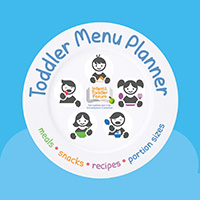
Use our Toddler Meal planning tool to ensure your 1-4 years old receives a balanced diet every day.
Find out more >
Use our toddler food tracker to check that your 1-4 year olds are getting a good balance of foods and activity
Find out more >
This educational programme for frontline professionals contains a range of practical resources on infant feeding.
Find out more >Small steps today for healthy feeding, growth and development tomorrow
Thursday 31st October 2013
Venue: Royal Society of Medicine, London
Endorsed for CPD by the BDA and RCPCH
Study Day 2013
This year’s Infant & Toddler Forum Study Day went back to basics to deliver clear, consistent, messages on healthy eating for health and childcare professionals. It looked at health issues affecting toddlers today as a result of excess or deficiency and provided information on key developmental milestones.
The interactive afternoon seminar programme provided practical guidance on how to convey key messages to parents and carers to instil healthier attitudes in their children for lifelong health, one small step at a time.
Plenary Sessions
Welcome and introductions
A look at the mounting latest evidence, which supports the need to embed early childhood nutrition in all aspects of child and health policy, to help ensure families instil healthier attitudes in their children for lifelong health.
Dr Atul Singhal (Chair)
Professor of Paediatric Nutrition, UCL Institute of Child Health
The Integrated Review: an early-years perspective
The Department of Health and the Department for Education’s joint initiative draws together the two-year-old progress check for education and the Healthy Child Programme Check for health. It is hoped that this combined review will give a more complete picture of the child at a crucial age in their learning and development. To be implemented by 2015, the combined review will help identify the child’s progress, strengths and needs to promote positive outcomes, facilitate intervention and support, and generate information that can be used to effectively plan health and education services.
Melanie Pilcher
Policy and Standards Manager, Pre-school Learning Alliance
Nutrition and its effects
Toddlers and young children are consuming some nutrients to excess. Sugar for example is now estimated to contribute one third of toddlers’ total daily calorie intake. With nearly a third of children aged 2-15 years classified as overweight or obese, what are the effects of excess on short and long-term health including other factors such as diabetes?
Prof Terry Wilkin
Professor of Endocrinology and Metabolism, Peninsula Medical School
The impact of deficiency on toddler development
In contrast to dietary excess, some toddlers in the UK have micronutrient deficiencies which can be critical in optimising growth, development and health. Methods for preventing deficiency are explored in this session, with a key focus on vitamin D and iron.
Dr Julie Lanigan
Paediatric Research Dietitian, UCL Institute of Child Health
Case Study ─ Raising awareness of the importance of Vitamin D
Case study presentation about the impact of a project to raise awareness of the importance of vitamin D with child care professionals in the London Borough of Croydon through the provision of training and resources for children centres.
Melissa Little and Lindsay Miller
Dietitan, Foodtalk CIC
A panel discussion took place in which Alison Wall participated.
Alison Wall
Health Visitor and Public Health Strategist
Seminar programme
Seminar 1 – A guide to developmental milestones in toddlers
Parents are often unsure about when their young child should be moving on through the stages of feeding and food acceptance. This session introduces the ITF’s new Factsheet to provide an understanding of the stages healthy, full term infants and toddlers will go through.
Dr Gillian Harris
Consultant Paediatric Clinical Psychologist
Seminar 2 – What is a healthy balanced diet?
A varied and nutritious diet is essential for a toddler’s healthy growth and development. This session looks at the essential components of a healthy diet and how to avoid excess and deficiency.
Judy More
Paediatric Dietitian
Seminar 3 – Promoting lifestyle change through motivational interviewing
Simply giving parents and carers advice on healthier lifestyles is often not enough to change behaviour. Motivational interviewing provides healthcare professionals with a guide to enhance communication with parents to facilitate positive behaviour change.
Dr Mark Farrall
Director of Ignition Creative Learning


